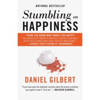
You are in charge of designing your franchise's new gift card prize - the winner gets a dinner once a week, or can share a dinner with one friend twice a week. The consumer preferences of the winner and friend are known, because of your tremendously sophisticated consumer sampling methods.
The winner is announced, a charming gentleman known only as "Fred". Fred is a sandwich sort of customer - who leans towards the salami submarine (S) type of fare. Our consumer preference database also reveals that Fred also likes ham sandwiches (H), and from time to time is known to indulge by scarfing back a burrito (B). In the language of economists, we say that Fred prefers S to H to B, S>H>B. Armed with this sophisticated notation makes us feel better about the task we are embarking upon - how to mix up H, S, and B to serve to Fred so that over the year Fred obtains maximal satisfaction. (We are told that Fred can be a bit demand, on occasion - so we really want to get it right.)
Since variety is the spice of life, as everyone knows, we need to mix up the delivery of sandwiches to Fred so that he doesn't get bored. We know that he would not be satisfied by a year's supply of S, we could even ask him.
We could ask him, and we would be wrong. Fred, whatever other qualities he might possess, according to the psychologist Daniel Gilbert would get his prediction of his own preferences wrong. Fred like most of us, believing in the spice of life, would not pick a diet which consisted of each week eating a salami submarine. And he would be wrong.
According to Gilbert, "Researchers studied this experience by inviting volunteers to come to the laboratory for a snack once a week for several weeks. They asked some of the volunteers to choose all their snacks in advance, and just as [we asked Fred to do] the choosers usually opted for a healthy dose of variety. Next, the researchers asked a new group of volunteers to come to the lab once a week for several weeks. They fed some of these volunteers their favourite snack every time, an they fed other volunteers their favourite snack on some occasions and their second favourite on others." The first group was more satisfied than the second - variety is not the spice of life.
Over a week, the taste of ones favourite food is no longer subject to habituation - the force that makes the tenth bite of a submarine not as exciting as the first bite. We confuse, says Gilbert, the decision between having ten salami submarines over ten weeks with having the choice between 10 bites of a salami sandwich versus five bites of a salami sandwich interspersed with five bites of a ham sandwich. Fred, for all his sandwich making skills, is no better than you or I avoiding this paradox.